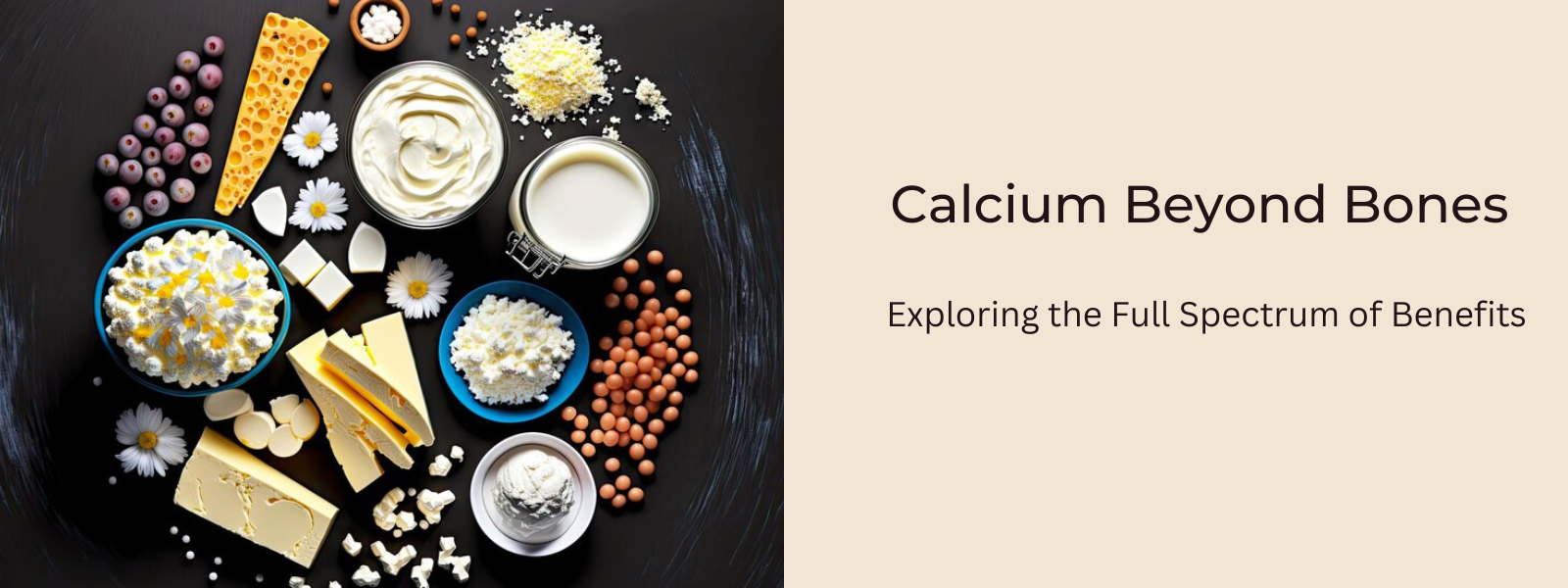Potassium is a vital mineral that plays a crucial role in supporting heart health and various other bodily functions. Beyond its role in regulating blood pressure by counteracting the effects of sodium, potassium is essential for maintaining proper muscle function, including the heart muscle. It facilitates nerve transmission, helps regulate fluid balance, and supports proper kidney function. Additionally, potassium plays a role in carbohydrate metabolism, protein synthesis, and maintaining pH balance in the body. Adequate potassium intake has been linked to a reduced risk of stroke, heart disease, and kidney stones. Incorporating potassium-rich foods such as bananas, oranges, spinach, potatoes, and yogurt into your diet can help support heart health and overall well-being.
Table of Contents
What Is Potassium?
Potassium is an essential mineral and electrolyte that plays a vital role in various physiological processes within the body. It is one of the key electrolytes along with sodium, chloride, calcium, and magnesium. Potassium is primarily found inside cells and is involved in maintaining fluid and electrolyte balance, nerve transmission, muscle contraction (including the heart muscle), and regulating blood pressure. It also plays a role in carbohydrate metabolism, protein synthesis, and pH balance. Potassium is obtained through dietary sources such as fruits (especially bananas, oranges, and dried fruits), vegetables (particularly leafy greens, potatoes, and tomatoes), dairy products, nuts, seeds, and legumes. Ensuring an adequate intake of potassium is crucial for overall health and well-being.
Potassium For Heart Health and More:
- Heart Health: Potassium plays a pivotal role in maintaining cardiovascular health. It helps regulate heart rhythm by assisting in the transmission of electrical impulses that control heartbeats. Adequate potassium levels support normal heart muscle function, promoting efficient pumping of blood throughout the body. Potassium also aids in vasodilation, which helps relax blood vessels and lower blood pressure. Studies have shown that diets rich in potassium are associated with a reduced risk of hypertension and cardiovascular diseases such as heart attacks and strokes.
- Blood Pressure Regulation: Potassium works synergistically with sodium to regulate blood pressure. While sodium tends to increase blood pressure, potassium has the opposite effect, counteracting the hypertensive effects of sodium. Potassium helps maintain the balance of fluids inside and outside cells, which is crucial for blood pressure regulation. It also supports the excretion of excess sodium through the kidneys, further aiding in blood pressure control. Increasing potassium intake and reducing sodium intake can help lower blood pressure and reduce the risk of hypertension-related complications.
- Muscle Function: Potassium is essential for proper muscle function throughout the body. It facilitates muscle contraction by regulating the movement of ions across cell membranes, particularly in skeletal muscles and the heart muscle. Adequate potassium levels prevent muscle weakness, cramps, and spasms, promoting optimal muscle performance during physical activity. In the heart, potassium regulates the rhythmic contractions necessary for maintaining cardiac function and blood circulation.
- Nerve Transmission: Potassium plays a crucial role in nerve transmission and signaling. It helps generate action potentials, which are electrical impulses that travel along nerve fibers, enabling communication between nerve cells and the brain. Proper nerve function is essential for sensory perception, motor coordination, and cognitive processes. Potassium ensures smooth nerve transmission, supporting overall nervous system function and responsiveness.
- Fluid Balance: Potassium helps regulate fluid balance in the body, ensuring proper hydration and electrolyte balance. It works in conjunction with sodium to maintain the osmotic pressure of body fluids, which is essential for normal cell function and hydration status. Potassium helps prevent dehydration and maintains optimal fluid levels in cells and tissues, supporting overall health and well-being.
- Metabolism and Energy Production: Potassium plays a role in carbohydrate metabolism and energy production. It assists in the conversion of glucose into glycogen, the storage form of carbohydrates in the liver and muscles. Potassium also supports protein synthesis and enzyme function, contributing to overall metabolic efficiency and cellular energy production.
- Bone Health: While potassium is not directly involved in bone formation, it may indirectly support bone health by promoting alkalinity in the body. Diets rich in potassium-containing fruits and vegetables have been associated with higher urinary pH levels, which may help reduce calcium excretion and preserve bone mineral density. While more research is needed to elucidate the relationship between potassium intake and bone health, incorporating potassium-rich foods into the diet can contribute to overall bone health.
Best Sources Of Potassium:
The best sources of potassium are typically whole foods, particularly fruits, vegetables, and some dairy and protein-rich foods. Here are some of the top sources of potassium:
- Bananas: Bananas are one of the most well-known sources of potassium. A medium-sized banana can provide around 400-450 mg of potassium.
- Sweet Potatoes: Sweet potatoes are not only rich in vitamins and fiber but also high in potassium. One medium-sized sweet potato contains about 450-500 mg of potassium.
- White Potatoes: White potatoes, especially when eaten with the skin, are another excellent source of potassium. One medium-sized potato provides approximately 600-700 mg of potassium.
- Leafy Greens: Leafy greens like spinach, kale, and Swiss chard are packed with potassium. One cup of cooked spinach, for example, can contain around 800 mg of potassium.
- Avocados: Avocados are not only creamy and delicious but also rich in potassium. One medium-sized avocado contains about 900 mg of potassium.
- Beans and Lentils: Beans and lentils are good sources of both protein and potassium. One cup of cooked lentils can provide around 730 mg of potassium, while one cup of cooked black beans contains approximately 600 mg.
- Tomatoes and Tomato Products: Tomatoes and tomato-based products like tomato sauce and tomato juice are rich in potassium. One cup of tomato sauce, for instance, can provide about 900 mg of potassium.
- Oranges and Orange Juice: Oranges and orange juice are refreshing sources of potassium. One medium-sized orange contains around 240 mg of potassium, while one cup of orange juice provides about 470 mg.
- Yogurt and Milk: Dairy products like yogurt and milk also contain potassium. One cup of plain yogurt typically contains approximately 380-420 mg of potassium, while one cup of milk contains about 380 mg.
- Salmon and Tuna: Certain types of fish, such as salmon and tuna, are good sources of potassium. A 3-ounce serving of cooked salmon can provide around 380 mg of potassium, while a 3-ounce serving of cooked tuna contains approximately 500 mg.
Best Ways To Consume Potassium To Avail Its Benefits:
To enjoy the health benefits of potassium, it's essential to incorporate potassium-rich foods into your daily diet. Start by including a variety of fruits and vegetables such as bananas, sweet potatoes, leafy greens, avocados, tomatoes, and oranges, which are excellent sources of potassium. Additionally, incorporate legumes like beans and lentils, dairy products such as yogurt and milk, and protein-rich foods like fish into your meals to further boost your potassium intake. Try to eat these foods in their whole, minimally processed forms to maximize their nutrient content. Experiment with different cooking methods, such as steaming, grilling, or roasting, to retain the potassium content of your foods. Snack on potassium-rich foods like nuts, seeds, and dried fruits throughout the day to increase your potassium intake.
MORE FROM BLOG
Top Collections
Heart Health Harmony: The Cardiovascular Benefits of Including Good Carbs in Your Daily Meals
2 Items










Leave a comment